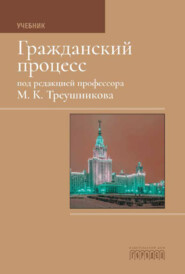По всем вопросам обращайтесь на: info@litportal.ru
(©) 2003-2024.
✖
International Short Stories: French
Настройки чтения
Размер шрифта
Высота строк
Поля
It went on in its destructive work. It had already shattered four other guns and made two gaps in the side of the ship, fortunately above the water-line, but where the water would come in, in case of heavy weather. It rushed frantically against the framework; the strong timbers withstood the shock; the curved shape of the wood gave them great power of resistance; but they creaked beneath the blows of this huge club, beating on all sides at once, with a strange sort of ubiquity. The percussions of a grain of shot shaken in a bottle are not swifter or more senseless. The four wheels passed back and forth over the dead men, cutting them, carving them, slashing them, till the five corpses were a score of stumps rolling across the deck; the heads of the dead men seemed to cry out; streams of blood curled over the deck with the rolling of the vessel; the planks, damaged in several places, began to gape open. The whole ship was filled with the horrid noise and confusion.
The captain promptly recovered his presence of mind and ordered everything that could check and impede the cannon's mad course to be thrown through the hatchway down on the gun-deck – mattresses, hammocks, spare sails, rolls of cordage, bags belonging to the crew, and bales of counterfeit assignats, of which the corvette carried a large quantity – a characteristic piece of English villainy regarded as legitimate warfare.
But what could these rags do? As nobody dared to go below to dispose of them properly, they were reduced to lint in a few minutes.
There was just sea enough to make the accident as bad as possible. A tempest would have been desirable, for it might have upset the cannon, and with its four wheels once in the air there would be some hope of getting it under control. Meanwhile, the havoc increased.
There were splits and fractures in the masts, which are set into the framework of the keel and rise above the decks of ships like great, round pillars. The convulsive blows of the cannon had cracked the mizzenmast, and had cut into the mainmast.
The battery was being ruined. Ten pieces out of thirty were disabled; the breaches in the side of the vessel were increasing, and the corvette was beginning to leak.
The old passenger having gone down to the gun-deck, stood like a man of stone at the foot of the steps. He cast a stern glance over this scene of devastation. He did not move. It seemed impossible to take a step forward. Every movement of the loose carronade threatened the ship's destruction. A few moments more and shipwreck would be inevitable.
They must perish or put a speedy end to the disaster; some course must be decided on; but what? What an opponent was this carronade! Something must be done to stop this terrible madness – to capture this lightning – to overthrow this thunderbolt.
Boisberthelot said to La Vieuville:
"Do you believe in God, chevalier?"
La Vieuville replied:
"Yes – no. Sometimes."
"During a tempest?"
"Yes, and in moments like this."
"God alone can save us from this," said Boisberthelot.
Everybody was silent, letting the carronade continue its horrible din.
Outside, the waves beating against the ship responded with their blows to the shocks of the cannon. It was like two hammers alternating.
Suddenly, in the midst of this inaccessible ring, where the escaped cannon was leaping, a man was seen to appear, with an iron bar in his hand. He was the author of the catastrophe, the captain of the gun, guilty of criminal carelessness, and the cause of the accident, the master of the carronade. Having done the mischief, he was anxious to repair it. He had seized the iron bar in one hand, a tiller-rope with a slip-noose in the other, and jumped, down the hatchway to the gun-deck.
Then began an awful sight; a Titanic scene; the contest between gun and gunner; the battle of matter and intelligence; the duel between man and the inanimate.
The man stationed himself in a corner, and, with bar and rope in his two hands, he leaned against one of the riders, braced himself on his legs, which seemed two steel posts; and livid, calm, tragic, as if rooted to the deck, he waited.
He waited for the cannon to pass by him.
The gunner knew his gun, and it seemed to him as if the gun ought to know him. He had lived long with it. How many times he had thrust his hand into its mouth! It was his own familiar monster. He began to speak to it as if it were his dog.
"Come!" he said. Perhaps he loved it.
He seemed to wish it to come to him.
But to come to him was to come upon him. And then he would be lost. How could he avoid being crushed? That was the question. All looked on in terror.
Not a breast breathed freely, unless perhaps that of the old man, who was alone in the battery with the two contestants, a stern witness.
He might be crushed himself by the cannon. He did not stir.
Beneath them the sea blindly directed the contest.
At the moment when the gunner, accepting this frightful hand-to-hand conflict, challenged the cannon, some chance rocking of the sea caused the carronade to remain for an instant motionless and as if stupefied. "Come, now!" said the man.
It seemed to listen.
Suddenly it leaped toward him. The man dodged the blow.
The battle began. Battle unprecedented. Frailty struggling against the invulnerable. The gladiator of flesh attacking the beast of brass. On one side, brute force; on the other, a human soul.
All this was taking place in semi-darkness. It was like the shadowy vision of a miracle.
A soul – strange to say, one would have thought the cannon also had a soul; but a soul full of hatred and rage. This sightless thing seemed to have eyes. The monster appeared to lie in wait for the man. One would have at least believed that there was craft in this mass. It also chose its time. It was a strange, gigantic insect of metal, having or seeming to have the will of a demon. For a moment this colossal locust would beat against the low ceiling overhead, then it would come down on its four wheels like a tiger on its four paws, and begin to run at the man. He, supple, nimble, expert, writhed away like an adder from all these lightning movements. He avoided a collision, but the blows which he parried fell against the, vessel, and continued their work of destruction.
An end of broken chain was left hanging to the carronade. This chain had in some strange way become twisted about the screw of the cascabel. One end of the chain was fastened to the gun-carriage. The other, left loose, whirled desperately about the cannon, making all its blows more dangerous.
The screw held it in a firm grip, adding a thong to a battering-ram, making a terrible whirlwind around the cannon, an iron lash in a brazen hand. This chain complicated the contest.
However, the man went on fighting. Occasionally, it was the man who attacked the cannon; he would creep along the side of the vessel, bar and rope in hand; and the cannon, as if it understood, and as though suspecting some snare, would flee away. The man, bent on victory, pursued it.
Such things can not long continue. The cannon seemed to say to itself, all of a sudden, "Come, now! Make an end of it!" and it stopped. One felt that the crisis was at hand. The cannon, as if in suspense, seemed to have, or really had – for to all it was a living being – a ferocious malice prepense. It made a sudden, quick dash at the gunner. The gunner sprang out of the way, let it pass by, and cried out to it with a laugh, "Try it again!" The cannon, as if enraged, smashed a carronade on the port side; then, again seized by the invisible sling which controlled it, it was hurled to the starboard side at the man, who made his escape. Three carronades gave way under the blows of the cannon; then, as if blind and not knowing what more to do, it turned its back on the man, rolled from stern to bow, injured the stern and made a breach in the planking of the prow. The man took refuge at the foot of the steps, not far from the old man who was looking on. The gunner held his iron bar in rest. The cannon seemed to notice it, and without taking the trouble to turn around, slid back on the man, swift as the blow of an axe. The man, driven against the side of the ship, was lost. The whole crew cried out with horror.
But the old passenger, till this moment motionless, darted forth more quickly than any of this wildly swift rapidity. He seized a package of counterfeit assignats, and, at the risk of being crushed, succeeded in throwing it between the wheels of the carronade. This decisive and perilous movement could not have been made with more exactness and precision by a man trained in all the exercises described in Durosel's "Manual of Gun Practice at Sea."
The package had the effect of a clog. A pebble may stop a log, the branch of a tree turn aside an avalanche. The carronade stumbled. The gunner, taking advantage of this critical opportunity, plunged his iron bar between the spokes of one of the hind wheels. The cannon stopped. It leaned forward. The man, using the bar as a lever, held it in equilibrium. The heavy mass was overthrown, with the crash of a falling bell, and the man, rushing with all his might, dripping with perspiration, passed the slipnoose around the bronze neck of the subdued monster.
It was ended. The man had conquered. The ant had control over the mastodon; the pygmy had taken the thunderbolt prisoner.
The mariners and sailors clapped their hands.
The whole crew rushed forward with cables and chains, and in an instant the cannon was secured.
The gunner saluted the passenger.
"Sir," he said, "you have saved my life."
The old man had resumed his impassive attitude, and made no reply.
The man had conquered, but the cannon might be said to have conquered as well. Immediate shipwreck had been avoided, but the corvette was not saved. The damage to the vessel seemed beyond repair. There were five breaches in her sides, one, very large, in the bow; twenty of the thirty carronades lay useless in their frames. The one which had just been captured and chained again was disabled; the screw of the cascabel was sprung, and consequently leveling the gun made impossible. The battery was reduced to nine pieces. The ship was leaking. It was necessary to repair the damages at once, and to work the pumps.
The gun-deck, now that one could look over it, was frightful to behold. The inside of an infuriated elephant's cage would not be more completely demolished.
However great might be the necessity of escaping observation, the necessity of immediate safety was still more imperative to the corvette. They had been obliged to light up the deck with lanterns hung here and there on the sides.
However, all the while this tragic play was going on, the crew were absorbed by a question of life and death, and they were wholly ignorant of what was taking place outside the vessel. The fog had grown thicker; the weather had changed; the wind had worked its pleasure with the ship; they were out of their course, with Jersey and Guernsey close at hand, further to the south than they ought to have been, and in the midst of a heavy sea. Great billows kissed the gaping wounds of the vessel – kisses full of danger. The rocking of the sea threatened destruction. The breeze had become a gale. A squall, a tempest, perhaps, was brewing. It was impossible to see four waves ahead.

















